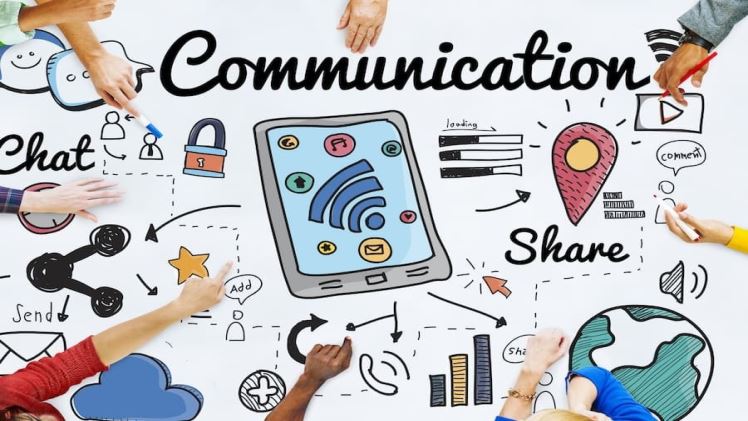Mastering the Art: Soft Skills Development for Effective Communication

In the realm of personal and professional success, the importance of soft skills—particularly those pertaining to effective communication—cannot be overstated. While technical skills may get your foot in the door, it’s your ability to interact, empathize, and connect with others that will dictate the height of your achievements.
This blog post delves into the art of soft skills development for effective communication, offering strategies to enhance your interpersonal abilities and navigate the complexities of human interaction with grace and confidence.
Understanding the Spectrum of Soft Skills
Soft skills encompass a wide range of competencies related to how we interact with others and manage our own internal states. Key among these, especially for effective communication, are emotional intelligence, active listening, empathy, assertiveness, and adaptability. Developing these skills not only improves your ability to communicate but also enhances your relationships, both personally and professionally, leading to more fulfilling interactions and opportunities.
Emotional Intelligence: The Keystone of Effective Communication
Emotional intelligence (EQ) is the foundational skill upon which many other soft skills are built. It involves understanding your own emotions and those of others, managing feelings effectively, and navigating social complexities with awareness and tact. By cultivating a high EQ, you can anticipate and respond to the emotional needs and cues of others, fostering an environment of trust and openness essential for effective communication.
Active Listening: More Than Just Hearing
Active listening goes beyond simply hearing words; it involves fully engaging with the speaker, understanding their message, and responding thoughtfully. It requires mindfulness, patience, and the ability to withhold judgment or advice until truly understanding the other person’s perspective. Practicing active listening can transform conversations, making them more meaningful and productive.
Empathy: Walking in Another’s Shoes
Empathy is the ability to understand and share the feelings of another. In communication, it serves as a powerful tool to bridge gaps and foster connections. By practicing empathy, you can approach interactions from a place of understanding and compassion, facilitating more genuine and constructive dialogue.
Assertiveness: Communicating with Confidence
Assertiveness is about expressing your thoughts, feelings, and needs directly and respectfully. It’s a balance between aggression and passivity, allowing for honest and open communication while respecting others’ boundaries. Mastering assertiveness ensures that your voice is heard and your needs are addressed, all without diminishing those of others.
Adaptability: The Art of Flexibility
In a world of constant change, the ability to adapt your communication style to different situations and personalities is invaluable. Adaptability involves being open to new ideas, flexible in your approach, and resilient in the face of challenges. It enables smoother interactions and helps navigate the diverse landscapes of personal and professional relationships.
Strategies for Developing Soft Skills
Self-Reflection and Awareness: Begin with introspection. Identify your strengths and areas for improvement in communication and set specific, achievable goals.
Seek Feedback: Ask for honest feedback from peers, mentors, or supervisors on your communication style and areas where you can improve.
Practice Active Listening: Engage more deeply in your conversations. Listen to understand, not just to respond. This practice alone can significantly improve your communication effectiveness.
Empathy Exercises: Put yourself in others’ shoes. Try to understand their perspectives and feelings, even if you disagree. This can be practiced through role-playing exercises or by simply being more mindful during interactions.
Assertiveness Training: Learn to express your needs and opinions confidently and respectfully. Workshops, self-help books, or even professional coaching can provide strategies and practice scenarios.
Adapt Communication Styles: Pay attention to the preferences and styles of those you communicate with and adjust your approach accordingly. This might mean being more direct with some or more reflective with others.
E-Learning Solutions to Enhance Soft Skills
In today’s digital era, e-learning platforms offer an effective way to develop essential soft skills for communication. These platforms provide accessibility to online courses, webinars, and interactive modules for improving emotional intelligence, active listening, empathy, assertiveness, and adaptability at a flexible pace.
Learners can practice skills through real-world scenarios in a safe environment, receive instant feedback, and follow personalized learning paths. E-learning ensures a continuous, engaging, and tailored learning experience for enhancing personal and professional communication capabilities.
Conclusion
Mastering the art of soft skills for effective communication is a journey that requires patience, practice, and perseverance.
By focusing on developing emotional intelligence, active listening, empathy, assertiveness, and adaptability, you can enhance your ability to connect with others in meaningful ways. These skills not only enrich personal relationships but also open doors to professional opportunities, leadership roles, and collaborative achievements.
Remember, the most impactful communicators are those who listen deeply, understand profoundly, and speak not just to be heard, but to truly connect. Embrace the journey of soft skills development and watch as new horizons in your personal and professional life unfold.

